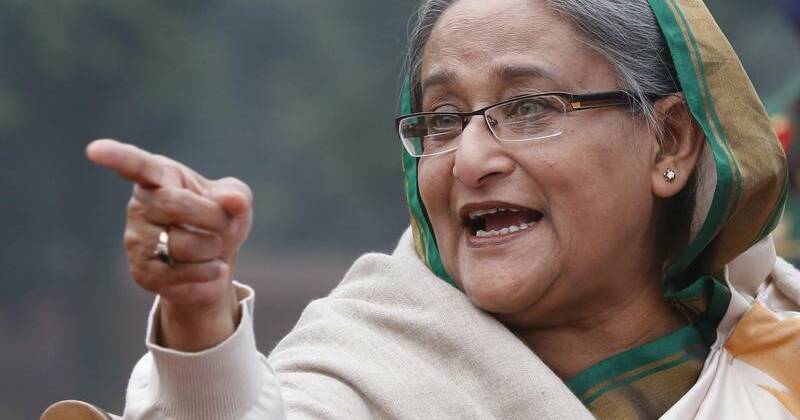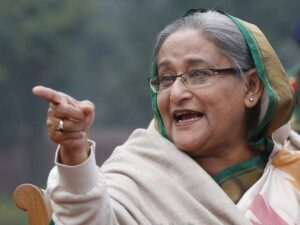
A court in Bangladesh has convicted former Prime Minister Sheikh Hasina of crimes against humanity, concluding a significant trial that established her culpability in directing a violent crackdown on a student-led uprising. The ruling was issued on October 23, 2024, just months before the parliamentary elections scheduled for early February 2025. The court’s decision has raised concerns about potential unrest, as Hasina’s political party, the Awami League, has been barred from participating in the upcoming election.
The International Crimes Tribunal, Bangladesh’s domestic war crimes court based in Dhaka, delivered the verdict in Hasina’s absence, as she has been residing in India since fleeing in August 2024. Under the applicable law, the maximum penalty for her crimes could be the death penalty. The verdict can be appealed in the Supreme Court; however, Hasina’s son and adviser, Sajeeb Wazed, indicated that they would not pursue an appeal unless a democratically elected government, including the Awami League, is restored.
During the trial, prosecutors presented evidence that Hasina had directly ordered the use of lethal force against protesters during the upheaval in July and August 2024. A report from the United Nations estimated that as many as 1,400 people may have died in the protests occurring between July 15 and August 5, 2024. Thousands more sustained injuries, primarily from gunfire inflicted by security forces, marking this as one of the most violent periods in Bangladesh since its 1971 war of independence.
Hasina was defended by a state-appointed counsel who argued that the allegations were unfounded and sought her acquittal. In the lead-up to the verdict, Hasina dismissed the charges and questioned the tribunal’s fairness, claiming that a guilty verdict was predetermined.
The political climate in Bangladesh has become increasingly tense as the trial concluded. In the days preceding the ruling, reports indicated over 30 crude bomb explosions and 26 vehicles were set ablaze nationwide, although no fatalities were reported. Law enforcement agencies have been on high alert, anticipating possible unrest in reaction to the verdict.
As Bangladesh approaches the upcoming elections, the implications of this ruling may significantly influence the political landscape, as many citizens remain apprehensive about the potential for renewed violence and instability.






